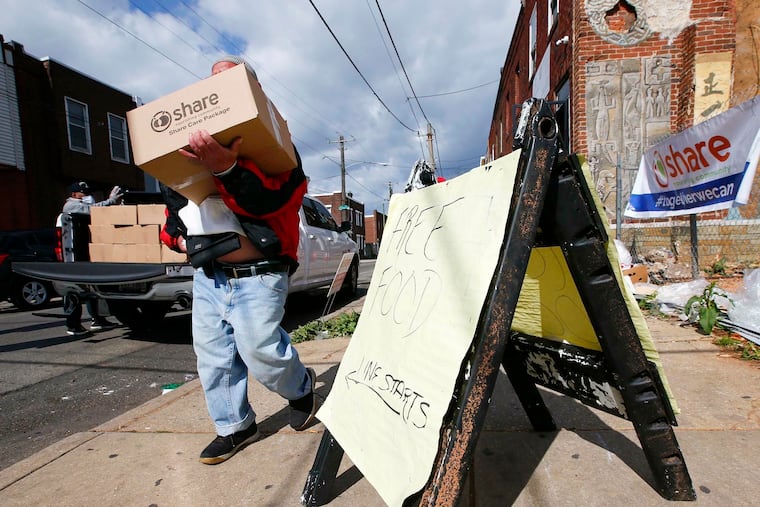300,000 Philly-area kids could go hungry if Congress doesn’t act | Opinion
The latest $1.5 trillion spending bill to fund the federal government does not include child nutrition waivers for schoolchildren.

In 1920, our country was coming out of the 1918-19 flu pandemic, one of the deadliest pandemics in history, in which one-third of the world’s population was infected. At that time, approximately 60% of Americans lived below the poverty level. As the U.S. looked to reduce hunger, all eyes turned to Philadelphia.
It was here, in 1920, that Philadelphia’s Emma Smedley wrote The School Lunch: Its Organization and Management in Philadelphia. This document outlined the architecture of school food services — from the organization of labor to the physical layout — and acknowledged the economies of scale needed to feed every child at school. Smedley’s writing set the standard for the national school lunch programs across the country, impacting millions of children for the better.
A century later, the National School Lunch Program stands in perhaps the most vulnerable state in its history. The proliferation of for-profit vendors in the latter half of the 1900s and into the 2000s has left our schools vulnerable as the price of food has failed to keep pace with inflation. With ever-skyrocketing food and gas prices, compounded with volatile supply-chain challenges, many vendors are moving away from school food services entirely. Now school kids are facing an even deeper threat, this time not at the hands of profiteering companies, but from our own United States Congress.
The latest $1.5 trillion spending bill to fund the federal government does not include child nutrition waivers for schoolchildren. Throughout the course of the COVID-19 pandemic, these vital waivers have enabled schools to feed all kids at no cost, regardless of family income.
As things stand, this critical endeavor to feed our children is set to expire on June 30. This would take lifesaving nutrition out of the mouths and bellies of millions of schoolchildren.
As the only nonprofit in the country that manages food commodities for schools, our Philadelphia-based organization, Share Food Program, has felt these challenges acutely. Every day, we field calls representing the 794 schools across nearly 70 districts in our region looking to source additional food as for-profit suppliers have turned their backs on schools the moment it ceased to be profitable enough.
With all the challenges already facing lunchrooms across the country, Congress’ failure to extend child nutrition waivers puts millions of children at risk of not receiving the nutritious meals they need every day. Without action, the U.S. Department of Agriculture is forecasting a potential 40% decrease in funding for school meals this year. This means that millions of children — including around 300,000 in the Greater Philadelphia region — might not have enough to eat each day.
This is not an issue in some faraway land, nor is it an ambiguous funding relief package. There are children living here in the United States of America who will be unable to get nutritious food at school due to nothing more than political gamesmanship.
When children go hungry, they suffer severe emotional and physical health consequences. Children who do not have adequate nutrition are sick more often and perform more poorly in school because they cannot concentrate. Hungry children also have more social and behavioral problems, and they cannot adapt as effectively to stress as children who have enough to eat.
Congress has the tools at its disposal to ensure that our children are fed. It’s not only common sense, it’s also our responsibility. Kids are depending on us.
I call on Republican members of Congress to join their Democratic colleagues in supporting the extension of these critical waivers. The one thing we truly cannot afford is to fail our children.
George Matysik is the executive director of Share Food Program.